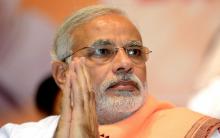Scipio(Scipio) Publius Cornelius African Senior - one of the most remarkable Roman generals. Born about 235 BC. During the battle at the river. Ticino saved his father. After the defeat of Cannes, S., the former chief of the legion, forced Cecilius Metellus and his associates, who in despair were planning to leave Italy, to abandon this plan. At 22 years of age he was elected to the aedile. When his father and uncle died in Spain in the fight against the Carthaginians and no one wanted to take the post of commander-in-chief of the Roman forces there, twenty-four-year-old S. became a candidate and was unanimously chosen for this responsible and dangerous post. A number of brilliant successes S. justified the confidence of his fellow citizens. Despite the fact that he had to deal with such experienced opponents as Gazdrubal, son of Gizgon, Gazdrubal, son of Hamilcar (brother of Hannibal), and Magon, S. acted very successfully: he took New Carthage, defeated Gazdrubal, son of Hamilcar, near Bekula. , after which the latter went to Italy to help his brother (208); the next year, S. in the same place defeated another Gazdrubal and gradually subjugated most of Spain to Rome. In addition to military talents, he also showed considerable diplomatic ability, skillfully positioning the Spanish natives in favor of Rome with generous treatment. S.'s successes so raised the prestige of Rome that the African kings Masinissa and Sifax entered into relations with Rome. S. personally came to Africa to meet with Sifax and entered into an alliance with him. Returning to Spain, he finally cleared it of the Carthaginians: Magon went to Italy, Hades surrendered to the Romans. S. brought from Spain to the Roman treasury huge amounts of silver and became the most popular person in Rome. He conceived a landing in Africa, although Hannibal was still in Italy. This bold plan seemed to be dangerous, cautious people, led by Q. Fabius Maxim and Kv. Fulvius, but he met with sympathy in the community. Many volunteers and donations of all kinds came to S. He first managed to organize a raid into Africa (under the command of Lelius) and force the Carthaginian garrison to withdraw from Locre; at the same time he had to endure many troubles in the Pleminius case (see Rome). Finally, the Senate gave permission to organize a landing in Africa (204). Military operations in Africa (see Punic Wars) ended with the defeat of Hannibal summoned from Italy at Zama and the conclusion of peace. Upon his return to Rome, S. received a brilliant triumph and the nickname "African", but other honorary awards offered to him, he rejected. He was unquestionably the first person in Rome and the recognized head of the aristocratic party. Soon he became princeps senatus, then was a censor, five years later - a consul for the second time (an exceptional difference in that era). He accompanied his brother Lucius, who was consul in 190, in the campaign against Antiochus of Syria and actually led the war. Upon their return to Rome, the brothers had to endure many troubles from the party led by M. Porcius Cato. A trial was started against Lucius S. on charges of concealing money (which apparently did take place) and of giving Antiochus, out of personal gain, too lenient peace terms. The behavior of Publius S. in these processes gave rise to fair criticism. The opponents of the Scipios prevailed; Lucius was charged and fined. He died soon after, and some time later, Publius S. (circa 183), who had recently lived on his estate in Campania, also died. Before his death, S. forbade the transfer of his ashes to Rome. He was at the head of a new cultural movement that resulted in the transfer of Greek education to Rome. The enmity towards the Scipios of people like Cato is largely due to this very fact. S.'s daughter, Cornelia, was married to Tiberius Sempronius Gracchus, the father of the reformers. Wed Fr. Dor. Gerlach, “P. Cornelius Scipio Africanus der Aeltere und seine Zeit "(Basel, 1868); his, "De vita P. Cornelii S. Africani Superioris" (Basel, 1865); Th. Mommsen, "Die Scipionenprocesse" ("Hermes", 1st century, 1866).
Participation in wars:
Second Punic War. Syrian war.
Participation in battles:
The capture of New Carthage. Battle of Bekul. With Ilipa. At Bagradis. Under Zama. Under Magnesia
(Publius Cornelius Scipio Africanus) Roman general, conqueror of Hannibal, consul
At the beginning 2nd Punic War Scipio participated in several unsuccessful battles for the Romans, including the Battle of Cannes in 216 BC. e. After Roman defeat at Cannes Scipio formed a legion from the surviving warriors.
Four years after his death in Spain Publius and Wrath of the Scipions contrary to the expectations of the consuls and the people, none of the eminent citizens nominated themselves for the post of proconsul of Spain, although the election day had already been set. And when, on the appointed day, the citizens of Rome appeared on the Champ de Mars, then no one here volunteered to be proconsul, except for the young Publius Scipio, who at the time was twenty-four years old.
At the end of 210g. BC. a top-manned legion led by Publius Scipio was sent to Spain. The praetor was appointed assistant to Publius. Mark Silan, and the commander of the fleet, Scipio appointed the legate of Gnaeus Lelius. In the spring of 209 BC. e. Scipio, as a result of a successful operation, took possession of New Carthage. It captured 18 warships, 63 transport supplies, a treasury with 600 talents, grain reserves, 10 thousand free men and hostages from Carthage's allies - the Iberians.
The citizens of New Carthage were released. Scipio gave the city the right to preserve its self-government. Young men and healthy slaves were sent by rowers to the ships and shipyards of New Carthage with the promise of freedom after the end of the war.
Hostages from the Spanish tribes who were in New Carthage were sent home. All these measures allowed Scipio to achieve a political goal - many Spaniards went over to the side of Rome, which allowed Scipio to replenish his army.
In the spring of 208 BC. e. Scipio moved to Andalusia, where he defeated Hasdrubala Barku at Bekul. In the battle, the Punyans lost 10 thousand people killed and 12 thousand prisoners. The remnants of Hasdrubal's army moved to Italy to join the army Hannibal.
In this regard, Scipio had to allocate part of his troops to Italy (8 thousand Gauls and Iberians, 2 thousand infantry and a thousand horsemen).
In the spring of 206 BC. e. Carthage launched a new offensive against Scipio in Spain. However, in the battle of Bekul-Ilil, the army of the Punyans - about 70 thousand people - was defeated, and Scipio occupied the last city in Spain - Hades.
Here the commander met with the Numidian king Masinissa, who promised Scipio his support in the event of the landing of his troops in Africa. Scipio went to Libya to meet with the Lydian king Sifax and also won his support for the period of the future campaign.
After that, he returned to Rome, but instead of the expected triumph, he appeared before the Senate with a report on the hostilities in Spain. Despite opposition, he was granted the rights of a consul, but most importantly, he managed to achieve the fulfillment of his plan - to transfer the war to Africa. He understood that as soon as his legions landed there, Hannibal would inevitably be recalled from Italy.
Senate did not allow Scipio recruit an army in Italy and did not provide him with assistance from public funds. Scipio could only recruit volunteers into his army and manage with his own funds and loans from private individuals. However, many tribes that previously supported Hannibal, primarily the Etruscans and Sabels, now began to provide free assistance to Scipio.
The base for the expedition to Africa was Sicily, where there were two legions left here for the defeat at Cannes. Here, Scipio had about 300 horsemen who did not express a desire to go to Africa. The commander offered them a kind of exchange - the transfer of horses and weapons to his detachment of volunteers, hardened in previous battles. Thus, a sufficiently combat-ready unit was formed by Scipio without special expenses.
Thereafter Scipio returned to the south of Italy, where he captured the last strategic line of Hannibal - Locrami. Here he left a garrison, and Scipio again returned to Sicily, where he completed the last preparations for the landing in Africa.
In the spring of 204 BC. e. Scipio with an army of 30 thousand sailed to the shores of Africa. Having landed near Utica, his troops set up camp and began a siege of the city. With the help of Masinissa's cavalry, Scipio devastated the Carthaginian fields. However, despite a six-week siege, he failed to capture the city. Sifax did not keep his word and remained on the side of Carthage. An army soon approached the city Hasdrubala (son of Gisgon) connected with Sifax.
Scipio had to lift the siege of Utica and fortify on a small peninsula. In the spring of 205 BC. e. Scipio's troops managed with one blow to end the military camps of both Hasdrubal and Sifaxa and begin a new siege of Utica.
Taking into account the defenses of Carthage, as well as the possibility of Hannibal's return from Italy, Scipio did not immediately attack Carthage, but only organized its blockade, depriving him of the possibility of supply and assistance from the allies.
By this time, Hasdrubal and Sifax, with an assembled army of 30 thousand people, moved to Scipio. Leaving a small detachment at Utica, Scipio went out to meet the enemy and, together with Masinissoy smashed it on Great plains.
The Carthaginian Senate decided to summon Hannibal from Italy and make peace with Rome. He even sent his delegates to the Roman camp. And although Scipio said that he had come to win, and not to conclude agreements, he expressed his readiness to conclude an agreement on his own terms. The Senate accepted the terms of the peace and sent its delegates to Rome with the order to sign the peace. However, in Rome, negotiations dragged on, and in 202 BC. e. Hannibal has landed at Leptis.
Leaving a small detachment to guard his camp, Scipio walked away from Hannibal through the valley of the Baghrad River. This path brought Scipio to the very center of supply of Carthage and its interior regions and at the same time brought him closer to the Numidian reinforcements of Masinissa.
Learning that by his actions Scipio endangered a vital area, the Carthaginian Senate demanded that Hannibal give the Romans a battle. Instead of going north towards Carthage, Hannibal moved west towards Scipio, who at this time joined with Masinissa and again continued his retreat. The Puni army was lured into an area in which there was an acute shortage of water. Both armies stopped at the village of Naragarra, where a personal meeting and negotiations took place between the two generals. However, the meeting did not lead to results.
The next day began battle of Zama Naragarr... Scipio arranged the legions in three lines, with enough distance between them for the passage of the elephants, which would inevitably fall under the cross-fire of javelins. On the flanks were the cavalry under the command of Lelia and Masinissa.
The elephants, frightened by shouts, trumpets and darts, rushed to run at their warriors. The cavalry surrounded Hannibal's troops from the flanks and went to their rear. The Punyans, led by Hannibal, fled from the battlefield. V the battle of Zama Punyans lost from 10 to 20 thousand people. The losses of the Romans were equal to 1.5 thousand killed and wounded.
Scipio sent 10 talents of gold, 1,500 talents of silver, ivory, and the most prominent of the prisoners to Rome by ships.
Realizing that it was impossible to take Carthage without a long siege, Scipio agreed to the conclusion of peace. He himself dictated to Carthage his terms, according to which Carthage remained free, but his possessions remained only in Africa. All the lands and property seized from him were returned to Masinissa. Carthage handed over to Rome its navy, except for 10 ships, transport ships and all war elephants. The main condition for peace was the prohibition of Carthage to fight without the consent of Rome. Rome also received an indemnity from Carthage in the amount of 10 thousand talents, paid over 50 years.
Upon returning to Rome Scipio celebrated a magnificent triumph and received honorary nickname African.
Scipio's victories in the 2nd Punic War brought him wide popularity in Roman society.
From 199 to 184 BC Scipio African was in the office of the princeps of the senate and had a tremendous influence on the entire political life of Rome. In foreign policy, Scipio and his supporters advocated the creation of a number of states dependent on Rome from the conquered regions, while leaving them some independence. Peace treaties became evidence of this line: with Carthage after the 2nd Punic War, with Philip the Great after 2nd Macedonian War and with the king of Syria Antiochus III... New colonies were established in northern Italy and on the Adriatic coast.
In domestic politics, Scipio's group advocated the wide allocation of land to poor citizens, primarily veterans, as well as the facilitation of military service for Roman soldiers.
When war broke out between Rome and the Syrian king Antiochus III, one of the squadrons of which was commanded by Hannibal, who had taken refuge in Syria, it was decided to put the younger brother of Publius Scipio at the head of the expeditionary forces - Lucius... Himself Publius Scipio Africanus made a legate under his brother. However, Publius himself was the real commander. He practically supervised the hostilities, in his hands were the finances.
In 189 BC. e. v Battle of Magnesia Antiochus III was finally defeated. According to the concluded peace, Syria lost its possessions in Europe and Asia Minor and the right to wage offensive wars with Western states. Antiochus III was charged with the obligation to extradite Hannibal.
A few years later, the group led by By Marc Porcius Cato blamed returnees to Rome Lucius and Publius Scipio in the state unreliability, which consisted in the fact that they achieved peace from Antiochus III by bribery. The Senate demanded a report on financial affairs from the Scipios. At the trial, Publius managed to defend the honor of his surname, but he was forced to leave Rome and retire to his estate in Litorn, where he died in 183 BC. e.
Biography
The content of the article
SCIPIONS, an outstanding Roman family from the Cornelian family. Its two representatives, brothers Publius Cornelius Scipio and Gnaeus Cornelius Scipio, during the 2nd Punic War from 217 to 212 BC. fought in Spain against Hasdrubal, the son of Hamilcar. After the victories won at the beginning, which prevented the Carthaginians from leaving Spain for Italy to help Hannibal, in 212 BC. both generals were killed in action. Even more fame was brought to the family by two other Scipios: Scipio Africanus, known as "Scipio the Elder", and Scipio Aemilian Africanus, or "Scipio the Younger".
Scipio African the Elder
(Publius Cornelius Scipio Africanus) (c. 234-183 BC), completely Publius Cornelius Scipio Africanus, one of the greatest generals of Ancient Rome. The son of the aforementioned Publius Cornelius Scipio, a participant in the 2nd Punic War, he fought bravely at Titinus (218 BC) and Cannes (216 BC). In 210 BC. Scipio, in fact a private person (which set an important precedent), was elected commander of the new Roman army sent to Spain. He took the Carthaginians by surprise and captured New Carthage, where the headquarters of the Carthaginian army was located, and in 209 BC. near Bekula won a brilliant victory over Hasdrubal, the son of Hamilcar. In 206 BC. Scipio captured almost all of Spain, inflicting a decisive defeat on the Carthaginians at Ilipa. Later that year, Scipio completed the expedition by capturing Hades, the last city in Spain to remain in the hands of the Carthaginians.
Upon his return to Rome, Scipio was elected consul in 205 BC. and received the province of Sicily. In 204 BC, when the Carthaginian army led by Hannibal was locked in southwestern Italy, Scipio managed to overcome opposition in the Senate and move the war to Carthage. He sailed to Africa and landed near Utica, where he was joined by the Numidian prince Masinissa. Early the next year, they defeated the combined forces of Hasdrubal, son of Gisgon and his Numidian ally Sifak, twice. As a result, the Carthaginians recalled Hannibal and his brother Magon from Italy. Attempts to conclude peace did not lead to anything, and the 2nd Punic War ended after Scipio's decisive victory over the Carthaginian army in the big battle at Zama. Scipio triumphantly returned to Rome, received the nickname "African", but instead of seizing the supreme power, which he was quite capable of, resigned.
In 190 BC. Scipio, as a legate, contributed to the success of the military expedition of his brother Lucius Cornelius Scipio against the king of Syria Antiochus III. When the commander returned to Rome, the enemies (the party of Cato the Elder and Flamininus) began to accuse the brothers of accepting a bribe from Antiochus, it came to a conviction against Lucius, and only the intervention of the tribune Sempronius Gracchus saved Lucius from prison. Scipio retired to his country estate near the town of Litern, where he died approx. 183 BC Scipio was not only an outstanding military leader, but also a real scholar, well acquainted with Greek literature and art. His daughter, Cornelia, was the mother of two famous Roman tribunes, Tiberius and Gaius Gracchus.
Scipio African the Younger
(Publius Cornelius Scipio Aemilianus Africanus) (185–129 BC), completely Publius Cornelius Scipio Emilian Africanus, Roman commander who destroyed Carthage, victoriously ending the 3rd Punic War, head of the circle of Roman and Greek writers and scientists, friend historian Polybius and philosopher Panethius, hero of Cicero's dialogue About the state... Scipio Africanus the Younger was the youngest son of the first marriage of Lucius Aemilius Paulus, the conqueror of Macedonia. When his parents parted, he was adopted by Publius Scipio, son of Scipio Africanus the Elder, and thus Emilian entered the family of Scipios. However, he maintained a close relationship with his own father, who gave him an excellent education, including Greek. Emilian accompanied his father on the Macedonian campaign in 168 BC. and on a trip to Greece after the defeat of King Perseus. Then his father gave him books from the library of Perseus.
Emilian first came to attention in 151 BC, when he volunteered for Spain as a military tribune. When the 3rd Punic War broke out (149 BC), Scipio headed to Africa as a military tribune. Dissatisfied with the course of the war, the people elected him consul in 147 BC, which was achieved as a result of a special decree of the Senate: Scipio was far from reaching the 43 years required to become consul. Returning to Africa, Scipio began the siege of Carthage and after a year of desperate resistance took the city by storm, plundered it, and sold the inhabitants into slavery. By order of the Senate, Scipio established here the province of Africa, with its center at Utica. He returned to Rome, celebrated a triumph and received the honorary title of "African".
Several setbacks that befell the Romans in Spain, forced them to re-elect Scipio as consul in 134 BC. (this also required circumvention of the law, since a second consulate was prohibited in 151 BC), and the following year, after a stubborn siege, he took the city of Numantia in Spain. Returning to Rome in 132 BC, Scipio publicly approved the assassination of his son-in-law Tiberius, who had paid with his life for attempting to reform, and thereby incurred the hatred of the popular. He became the recognized leader of the aristocrats, supporting their resistance to the agrarian legislation of the Gracchi. In 129 BC, on the morning of the day when Scipio was supposed to address the popular assembly on the distribution of land, he was found dead in his own bedroom.
Publius Cornelius Scipio Africanus the Elder (Publius Cornelius Scipio Africanus Maior,? 235 BC, Rome - 183 BC, Litern, Campania) - Roman commander of the Second Punic War, winner of Hannibal, censor from 199 BC. BC, from 199 BC e. - thrice princeps of the Senate, consul 205 and 194. BC e.
Scipio was the son of a soldier. All his family was hereditary military. The first mentions of him as a military man date back to 218 BC. Then he attacked enemies on the Titin River in Northern Italy. He saved his father from Hannibal's troops. There was a war with Carthage and Scipio lost his loved ones one by one. Killed his father, father-in-law, brother, uncle. These losses, the Roman army defeated by a powerful enemy ... All this prompted a desire in Scipio to take revenge on Carthage. He began to study military skills and tactics of conducting the battle of his main enemy - Hannibal. As a result, Scipio came to the conclusion that it was impossible to adhere to defensive tactics in the battle with the Carthaginians.
In 209, Scipio landed in Spain with his army. He had 28 thousand infantry and three thousand horsemen at his disposal. Scipio decided not to start a decisive battle right there. Scipio paid more attention to the port of New Carthage, which was the main supply channel for the enemy army. He managed to deprive the enemy of supplies, and now he had to take care of his own army. Scipio wanted to teach the soldiers to act independently in battle. He drilled and taught, almost around the clock. He demanded complete dedication from the soldiers, but listened carefully to their personal needs and requirements. In addition, Scipio managed to equip his army with the best Spanish swords. In 208 - 206. to this day, Scipio fought successfully. In 206, he fought a decisive battle with the Carthaginians at Ilp. The army of the Carthaginians outnumbered the army of Scipio, but he neutralized this advantage with a surprise attack in the early morning. He advanced on both flanks and quickly surrounded the enemies. Success was also ensured by the excellent discipline and organization of his army.
Spain returned to the Romans, and the troops proclaimed Scipio emperor. In those days, this meant only the highest military power. It should be noted that of the Roman generals, he was the first to receive this title. Scipio decided that he would not fight Hannibal in northern Italy, where Carthage's troops still remained. Instead, he went to North Africa. In 204 BC, Scipio landed with troops on the land of the Carthaginians, and quickly won several victories there, enlisting the support of the Numidian king. He continued to win victories in the lands of Carthage. Understandably, the government called Hannibal to his homeland for help. Scipio expected this. He did not allow the enemy troops to rest and reorganize and attacked them. Several skirmishes took place, and then, in 202 to the present day, these two talented and intelligent commanders met in the decisive battle of Zama. Scipio defeated Hannibal. He killed about 15 thousand enemy soldiers, and captured even more. On the part of Scipio, the losses were five or six thousand soldiers. Hannibal fled with the remnants of the soldiers to Carthage, and began to ask for peace.
The Second Punic War ended with a Roman victory. The rule of the Roman Republic was established over the entire Mediterranean Sea. Now this power has become the strongest in the entire ancient world. Scipio was greeted in Rome as a hero, from the Senate he received the honorary title of African, for the conquest of Africa. After taking a significant break, in 190 BC Scipio participated in the war against Syria, and three years later he returned home. In 183 BC. Scipio died. He was not as famous as Hannibal, but it was Scipio who won during a direct confrontation between two generals and two powers.
Scipio African Elder. Antique statue.
Scipio, Publius Cornelius Scipio Africanus Major (c. 235 - c. 183 BC), commander and state. activist during the 2nd Punic War. At the Battle of Cannes (216), in which the Romans were defeated by Hannibal, Scipio fought as a military tribune. In 207, he defeated the Carthaginian commander Hasdrubal and gradually subdued most of Rome Spain... In 205, the consul. Showed a diplomat. ability, prepared the invasion of Africa. Having defeated the army of Hannibal at Zama (202), he concluded a peace beneficial for Rome. On his return to Rome, Scipio was greeted with triumph and nicknamed African. After the defeat of the army, the Carthaginians played a prominent role in the political life of Rome. Since 199 censor and princeps of the Senate, consul (194).
+ + +
Scipio Africanus (235-183). From an early age he took part in the battles of Tesin and Cannes, where he studied Hannibal's military tactics. Not being elected consul, he received a proconsular empire in 210 in Spain and achieved unprecedented success here, capturing New Carthage, the capital of Punic Spain. In 205 he was elected consul and received consent to conduct military operations in Africa, where, thanks to the support of Massinissa's cavalry, he defeated Hannibal. Having freed Rome from its most dangerous enemy, he returned home in triumph, greeted by the people all the way back. According to Titus Livy (XXX, 45), he was the first commander to receive the nickname after the name of the people he conquered (African). Subsequently, as a legate of his brother Lucius, who later received the nickname Asiatic, in 198 he took part in the victorious war of the Romans against Antiochus III the Great and almost captured Hannibal, who was an adviser to King Seleucid. He also had to visit Carthage again to resolve the border conflict with Massinissa. Gravely ill and discouraged by the proceedings initiated by his enemies in the Senate, he ended his days in a villa in Campania.
Used materials published by: E. Drydi Carthage and the Punic World / Edi Drydi. - M., 2008, p. 387-389.
Publius Cornelius Scipio Africanus the Elder (237-183 BC) - Roman military leader and politician. In 218 he took part in the battles of Titinus and Trebbia. During one of the battles, according to legend, Scipio saved his father's life ( Publius Cornelius Scipio). After the death of his father in 212, Scipio put forward his candidacy for the post of Roman commander-in-chief in Spain. Having landed at the mouth of the Iberus in 209 and having an army of 30,000, Scipio launched a surprise attack on the stronghold of the Carthaginians in Spain - New Carthage. A huge booty was taken in the city, noble captives and Spanish hostages. The latter were sent home by Scipio without ransom. This provided him with the support of many Spanish tribes. In 208 Scipio defeated the Carthaginian general Hasdrubal at the Battle of Bekul. After that, Hasdrubal left Spain and went to Italy to help his brother Hannibal. In 207, Scipio's legate Marcus Junius Silanus defeated the Carthaginian army under the command of Magon. Scipio himself at this time acted in Further Spain near the Betis River.
With another decisive victory over the Carthaginians at the Battle of Ilipa in 206, Scipio became master of Spain. In the same year, Scipio returned to Rome and was elected consul in 205. Immediately after the elections, he went to Sicily to prepare an army for the crossing to Africa. In 204, a 30-thousandth Roman army under the command of Scipio landed in Africa near Utica. The following year, Scipio defeated two Carthaginian-Numidian armies at Utica and on the Bagrad River. In the decisive battle at Zama on October 12, 202, he defeated Hannibal who had returned from Italy and forced the Carthaginians to ask for peace. For the victory over the Carthaginians, Scipio received the nickname African and entered Rome in triumph.
For 10 years Scipio Africanus remained the most significant figure in Rome; he was appointed princepsom of the senate, which allowed him to determine the policy of the Roman state. In 198 he was elected censor, in 194 he became consul for the second time, in 193 he went to Africa as a member of the Senate commission to settle the dispute between the Carthaginians and the Numidian king Masinissa.
In 190 Scipio Africanus, as a legate of his brother Lucius, who had been elected consul for the war against the Syrian king Antiochus III, went to Asia Minor. He did a lot to win, although he was not able to participate in the decisive battle at Magnesia due to illness. Upon their return to Rome, political opponents of the Scipios began a campaign to discredit them. Lucius Scipio, who received the nickname of Asia for the victory over Antiochus III, was prosecuted for withholding money from the booty and was found guilty. In 185, Scipio Africanus was also charged with receiving a large bribe from Antiochus III. Without bringing the matter to trial, he retired into self-imposed exile in Litern, where he died in 183.
Titus Livy about Scipio African the Elder: “A worthy husband! with the onset of old age, the glory of his exploits faded, food for the mind did not appear. What, in comparison with his first consulate, was the second, even if we add censorship to it? unhappy adventure with his son, and after returning the need to either appear in court, or, avoiding him, leave the fatherland at the same time?
Used materials of the book: Tikhanovich Yu.N., Kozlenko A.V. 350 grand. A short biography of the rulers and generals of antiquity. The Ancient East; Ancient Greece; Ancient Rome. Minsk, 2005.
Read on:
Bikerman E. Chronology of the Ancient World. Middle East and Antiquity. Publishing house "Science", Main edition of oriental literature, Moscow, 1975
Historical faces of Rome (all Romans) and only emperors (index).
Roman consuls (index).
Publius Cornelius Scipio (? - 212 BC) - Roman commander and politician, father of Scipio Africanus the Elder.
Publius Cornelius Scipio Emilian Africanus the Younger (185-129 BC), military leader and state. activist, speaker, grandson of Scipio Africanus the Elder.











How to understand: will the kitten be fluffy?
What light alcohol can pregnant women drink: consequences of consumption
Why do legs swell in the ankles and ankles of feet in pregnant women: causes and methods of treatment
The wedding of Prince Harry and Meghan Markle: scandalous and secret details of the marriage (photo) Future marriage of Prince Harry year NTV
How to close white plums for the winter